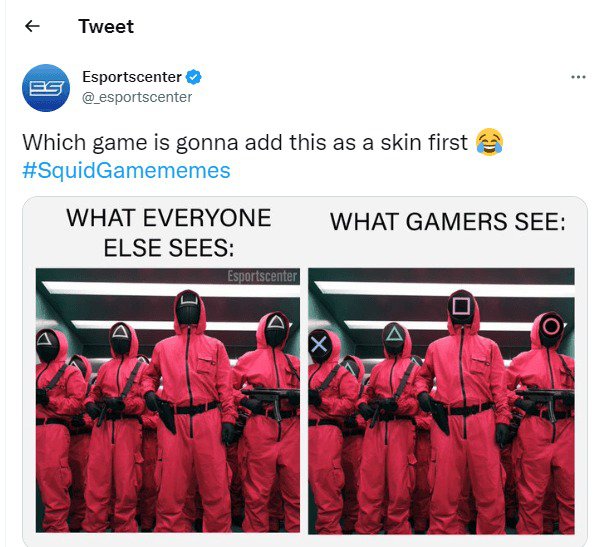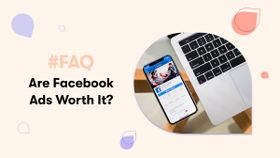What is a Meme?
Updated May 5, 2024.

A meme is a piece of media, often humorous, that spreads rapidly through the internet. It usually consists of an image or video with text that captures a cultural or social idea, making a commentary through satire, irony, or simple humor. Memes often evolve and gain new meanings as they are shared and reinterpreted by different online communities.
Where does “meme” come from?
The word "meme" originates from Ancient Greek, where it meant "something imitated". The term was first coined by evolutionary biologist Richard Dawkins in his 1976 book "The Selfish Gene", where he used it to describe the spread of cultural ideas.
However, the modern usage of the word has evolved and expanded to include internet memes. These days, "meme" is more commonly used to describe common trends in current trends, humor, and communication that spread rapidly across various online platforms.
How do memes benefit marketing?
Memes are frequently used as powerful marketing tools - especially for brands that like creating low-cost marketing content that drives high organic engagement rates.
- Increased brand visibility: By creating and sharing memes related to their brand, companies can increase their online visibility and generate brand recognition. Memes provide a way for companies to tap into popular culture and stay relevant in the minds of consumers.
- Enhanced social media engagement: Memes are highly shareable and have the potential to go viral, leading to increased engagement on social media platforms. When users find a meme they relate to, they are likely to share it with their friends and followers, thereby increasing the reach of the brand's message.
- Humanizing the brand: Memes allow companies to showcase their lighter side and connect with their audience on a more personal and informal level. By using humor in marketing, brands can create a sense of relatability and authenticity, making them more approachable to consumers.
- Higher conversion rates: Memes help build a sense of community and increase user engagement and if placed correctly on your landing pages / blog posts they could increase conversions. They also have a higher shelf life on social media networks so you can re-use them over and over.
How do memes spread?
Memes are typically shared through social media platforms such as Twitter, Instagram, and Facebook. However, Reddit threads, blogs, and other online forums also play a significant role in spreading memes. The ease of sharing and the ability to reach a large audience quickly are key factors in the rapid spread of memes.
Not all memes go viral, but those who do are usually those that:
- Are very relatable
- Are easy to adjust to different situations and contexts
- Have a strong emotional impact
- Are visually appealing
- Can be understood quickly without any additional context or explanation
- Can be easily shared, copied, and pasted
Should brands use memes for digital marketing?
There is a lot of debate on whether brands should use memes for social media marketing. While memes can be an effective way to reach a younger demographic and create engagement, they can also backfire if used inappropriately.
Brands should carefully consider their brand image and target audience before incorporating memes into their marketing strategy. Memes that are too forced or out of touch with the brand's identity may come off as insincere and harm the brand's reputation.
Ultimately, it comes down to who you are as a brand, your overall marketing approach and marketing goals, and who your ideal target audience is.
Are they:
- Younger generations who are familiar with internet culture and humor?
- Professionals in a (very) serious industry where using memes may not align with the brand's image?
For instance, if your target audience consists of, say, customer support pros, marketers, and even some types of executives in the software industry, memes will likely be a good option. If, however, your target audience is medical experts or finance professionals, memes may not be appropriate (or just in very specific contexts and for very specific products.) It's essential to consider the context and audience before using memes in a brand's social media strategy.
Keep in mind that even within the same age group, memes are not always well-received -- and not all memes are the same. Some may be relatable and well-liked, while others may be seen as cringeworthy or offensive.
For instance, Gen Z might not relate to the same memes as Millennials, as they have different cultural references and humor preferences. Therefore, brands need to stay current with internet trends and understand their target audience's preferences before incorporating memes into their social media marketing strategy.
This is not meant to scare you off. There are a lot of marketing examples where using memes and humor proved to be more than successful. There are plenty of digital marketing occurrences where memes backfired and sparked conversations, creating a positive and memorable impression of the brand. Memes have the power to create a viral effect, with users sharing them across social media platforms, increasing brand visibility and reach.
How to use memes in social media marketing
If you decide to use memes in your marketing efforts, consider the following best practices:
- Stay relevant and current with internet culture and current trends
- Be consistent with your brand image and tone
- Avoid controversial or offensive topics (always think of the wider audience you're targeting)
- Add value to the conversation, don't just use memes for the sake of being funny or going viral with our social media posts
- Use memes sparingly and strategically (you don't want to be a "meme brand," you want to use memes as a powerful tool to spread your marketing message)
- Always give credit to the original creator if using someone else's meme
- Remember that using memes for marketing is about balance between humor, digital culture, your marketing purpose, and business goals.









